Before the Don Imus show was canceled last year, New Mexico governor and then Democratic presidential candidate Bill Richardson used the word maricon, Spanish slang for "f****t," after the shock jock goaded Richardson by questioning his Hispanic heritage. "Would you agree that Bernard is a maricon?" Imus asked Richardson, referring to his cohost, Bernard McGuirk.
Replying in Spanish, Richardson laughed: "I believe that Bernard, yes, he's a f****t if he thinks I am not Hispanic."
Richardson is hardly the only prominent Democrat to engage in such banter. In an excerpt from his book, No Excuses: Concessions of a Serial Campaigner, Democratic strategist Bob Shrum recounts a 1998 encounter with John Edwards, who had hired him as a consultant for his first Senate campaign. "What is your position, Mr. Edwards, on gay rights?" Shrum recalls asking Edwards. "I'm not comfortable around those people," the future senator replied -- though both Edwards and his wife, Elizabeth, have since said that the quote was taken out of context.
In October, Barack Obama's presidential campaign invited Donnie McClurkin -- a notorious "ex-gay" singer and minister -- to participate in its Southern Gospel Tour event in South Carolina. McClurkin claims that homosexuality can be "cured" through prayer and that gay people are "trying to kill our children." While Obama later claimed that he did not agree with McClurkin about gays, he had no problem giving the performer a platform to preach his bigotry, knowing that such views are widely held among the conservative Southern black voters whose support he needs to win the Democratic nomination.
Also in 2007, Joe Wilson, husband of former CIA agent Valerie Plame and hero to liberal bloggers, gratuitously attacked former Bush campaign manager Ken Mehlman and California congressman David Dreier, both of whom have been the subject of gay rumors. "He's had three wives, he's a womanizer, he's done drugs," Wilson characterized the right-wing smear campaign against him. "But then they realized they couldn't use those because I've never actually denied them. I mean, I'm the first to admit that, unlike Ken Mehlman and David Dreier, I really like women." And in 2003, Pete Stark, a leading member of the liberal, antiwar faction of Democrats in Congress, repeatedly called one of his fellow congressmen a "little fruitcake" in a meeting on Capitol Hill.
If John McCain had confessed to being "not comfortable" around "those people," handed a microphone over to the likes of Donnie McClurkin, cast aspersions about the sexuality of political opponents, or just openly called someone a "fruitcake," the denunciations from liberals would be swift and unforgiving. Yet Democrats in particular and liberals more broadly always get a pass. Indeed, at the time of Stark's outburst, the Human Rights Campaign defended the congressman by emphasizing that he "is one of the gay community's staunchest allies." Log Cabin Republicans president Patrick Sammon points to the example of the Democratic mayor of Fort Lauderdale, Jim Naugle, who has made a series of homophobic remarks about the many gay tourists who visit his Florida city. Rarely, however, do news stories ever mention that Naugle is a Democrat. "If he was a Republican, every single story about him would have 'Republican' before his name," Sammon says.
The liberal journalist Eric Alterman, a columnist for The Nation and a senior fellow at the Center for American Progress think tank, is a particularly nasty example of the liberal homophobe. Two years ago he challenged gay, HIV-positive journalist Andrew Sullivan to prove a claim Sullivan had made about Alterman regarding military action in Afghanistan, offering to pay "$10,000 to the AIDS charity of Sullivan's choice." He mocked Sullivan, "who is HIV positive and likes to discuss this fact with reporters," for his "remodeled bathroom in P-town." Alterman regularly refers to Sullivan as "little Roy," after Roy Cohn, the gay aide to Sen. Joe McCarthy who died of AIDS complications. Following Ann Coulter's labeling Democratic presidential candidate John Edwards a "f****t" in 2007, Alterman said, "Look, the word 'f****t' ... is a word one hears in private conversation quite frequently; she just said it in public." Makes one wonder what sort of company Alterman keeps.
As odious as this rhetoric may be, it is indicative of an attitude among straight liberals for whom gay rights is not a signature issue. They may be happy to support the notion of gay civic equality in the abstract, but it's certainly not something they're going to go out of their way to do and risk political capital. And if in the course of political debate they have the opportunity to denigrate gays for political advantage (or are forced to contend with a gay person who does not share their views), they won't think twice about saying things that, were they to come out of the mouth of a conservative, would immediately be labeled "homophobic."
The most common form of liberal homophobia is the sort launched against gays who identify as conservative, libertarian, or just not liberal. These attacks, unfortunately, mostly come from gays themselves. Former Village Voice columnist Richard Goldstein wrote an entire book, The Attack Queers, castigating any gay person to his right as a sell-out. A reviewer commented at the time that "Goldstein views gays who do not identify as left-wing and their eagerness to win political battles of their own as a threat to gay progress and an affront to gay history." A whole genre of gay journalism exists attacking gay conservatives (or, more accurately, non-liberal gays) as mentally disturbed or suffering from a form of false consciousness. And in pop culture the "gay Republican" is something akin to a Jewish Nazi or a black Klan member.
As someone who works for a liberal magazine (The New Republic), considers himself a moderate, and holds a number of positions that are identified as "conservative," I've often been the target of such attacks. Liberals, especially straight ones, expect gays to side with them instinctively because we "owe" the left for whatever rights we have gained. To do otherwise -- to express heterodox opinions or, even worse, support a Republican for office -- is nothing less than a moral betrayal. An angry reader, presumably straight, recently commented on a blog post of mine: "The only liberal policy stand that I remember you taking is pro-gay rights -- which, hey, I am glad we can help you out, but you might want to in turn have some compassion for some other people who aren't you too. Try it."
Recently, I had lunch with a liberal gay blogger, a source for a story. We got to talking about a gay conservative journalist, and he stated, matter-of-factly, that this man was "a harmful gay." It was for this reason, my interlocutor told me, that this journalist was fair game for public ridicule. I was taken aback. What are the criteria for being "a harmful gay?" Not agreeing with the Democratic National Committee? Or is it the judgment a completely arbitrary one rendered by liberal gay bloggers?
The Historic Genesis
The most sophisticated example of this intellectually prohibitive discourse is a 1997 New Yorker article by the former Washington bureau chief of Salon.com and current Hillary Clinton adviser Sidney Blumenthal. In a review of Whittaker Chambers: A Biography by Sam Tanenhaus (full disclosure: I was once a research assistant for Tanenhaus on his forthcoming biography of William F. Buckley Jr.), Blumenthal posits that Chambers, a communist-turned-conservative, testified against Alger Hiss because of his unrequited love for the handsome State Department official and Communist spy. For Chambers and a variety of other gays, "conservatism was the ultimate closet."
Blumenthal's entire review consists of such armchair psychoanalysis, and his diagnosis of Chambers reads like something out of the National Association for Advancement of Reparative Therapy. Chambers's mother was "smothering, hysterical and invasive" and his father was "remote and distant." Chambers was "at once hysterical and phlegmatic, lugubrious and facile, paranoid and erudite." The pudgy, ugly Chambers (his high school nicknames were "Girlie, Stinky, and Mr. Chamber Pot") was jealous of the attractive Hiss, whom Blumenthal describes as a "tall, slim, graceful man, who wore elegant clothes." Blumenthal coyly quotes Chambers as saying that "Mr. Hiss represents the concealed enemy against which we are all fighting and I am fighting."
Liberals have no compunction about propagating this type of homophobia, which categorizes gay conservatives as "self-hating." But if liberals believe in the humanity and individuality of gay people (not to mention blacks, women, and other minorities expected to sympathize with the left), a corollary to that acceptance is an understanding that gays may not agree with them on issues ranging from affirmative action to Iraq.
Politics
While Democrats frequently (and correctly) complain of the right's use of gay issues to stir up their conservative base, they themselves were not strangers to this tactic, as exemplified as recently as the Mark Foley saga. The canard that gay men prey on young boys remains credible in America, a misconception that the never-ending sensational coverage of the Foley case only strengthened. Days after the scandal broke, Minnesota Democratic congressional candidate Patty Wetterling rushed television ads onto air stating that the imbroglio "shocks the conscience. Congressional leaders have admitted to covering up the predatory behavior of a congressman who used the Internet to molest children." But there was never any evidence that Foley had "molested" anyone; Wetterling jumped to the conclusion shared by many people about gay men for electoral advantage.
President Bush has hardly been a friend to gays during his two terms in office, but it may come as a shock to liberals that Bill Clinton was no better, and arguably worse. One of Clinton's first acts as president was to introduce "don't ask, don't tell," enshrining active discrimination against open homosexuals in law; in the first five years of his presidency, discharges of gay soldiers rose 70%. In 1996, Clinton signed the Defense of Marriage Act, which allows states (and the federal government) not to recognize same-sex marriages of other states, and then touted his support of the measure on Christian radio stations. The Clinton Justice Department refused to offer an amicus brief in the Supreme Court case of Romer v. Evans, which challenged a Colorado constitutional amendment seeking to ban cities and towns from instituting antidiscrimination laws protecting gays. Clinton also signed a bill barring HIV-positive people from entering the country and one that discharged HIV-positive soldiers from the military. "It's really outrageous the pass that Clinton has gotten from gay and lesbian people considering the harm he did to the gay rights movement," Sammon says.
Clinton's did not stop harming gays once he left office. In 2004 he reportedly encouraged Democratic presidential candidate John Kerry to not only support anti-same-sex marriage constitutional amendments at the state level, but the Federal Marriage Amendment as well. The Clinton administration -- looked upon by liberals, gay ones especially, as a golden era in American history -- proved that leading Democrats can be pro-gay by convenience, not conviction, and that when homophobia works for political advantage liberals are no less hesitant to employ it than conservatives. Even Ralph Nader dismissed the same-sex marriage plank in the Green Party's platform as an obsession with "gonadal politics" when he ran for president in 1996.
Fortunately, some gay liberals see the political situation for what it is. Larry Kramer, the legendary playwright and AIDS activist and himself a man of the left, frequently complains about Democratic fecklessness. In a speech last year marking the 20th anniversary of ACT UP, he remarked that "there is not one single one of them, candidate or major public figure, that, given half a chance, would not sell us down the river. We have seen this time after time, from Bill Clinton with his 'don't ask, don't tell' and his full support of the hideous Defense of Marriage Act (talk about selling us down the river) to Hillary with her unacceptable waffling on all our positions."
Liberal "Humor"
Upon the publication of C.A. Tripp's The Intimate World of Abraham Lincoln in 2004, the contention that Lincoln was gay enlivened a national debate. In January of 2005, The Nation printed a cartoon titled "Babe Lincoln," which showed a burlesque Lincoln wearing a top hat yet dressed in women's lingerie with his posterior bent out and breasts at attention. Never mind the immediate association of homosexuality with transgenderism, something to which many gays would take offense. The point of this cartoon (and another published on Salon featuring Lincoln in tight jeans, muscle shirt, and an earring) was to show how preposterous the claim is that a great American like Lincoln could have been gay. Because gays, as we know, are silly, high-pitched fairies, best left to help choose wedding dresses or upholstery, like the minstrels on Queer Eye for the Straight Guy.
In the realm of politics -- the main arena where the tangible struggles for gay equality play out -- there is no argument to be had about whether it is liberals or conservatives who are predominantly on the side of gays. By no means do the instances of liberal homophobia cited above amount to the same sort of organized campaign of intolerance that is a sustaining principle of the religious right. But the emphasis that the left places on its role in securing gay rights is vastly overstated, and in the public square, another arena in the battle for gay civil rights, liberals have foisted a discourse that is at times reactionary and outright hostile. Support for gay rights legislation -- when they feel like supporting it -- does not absolve liberals of homophobia, however casual it may at first appear. It's well past time to put to rest the conviction that antigay bigotry is the exclusive province of the Right.
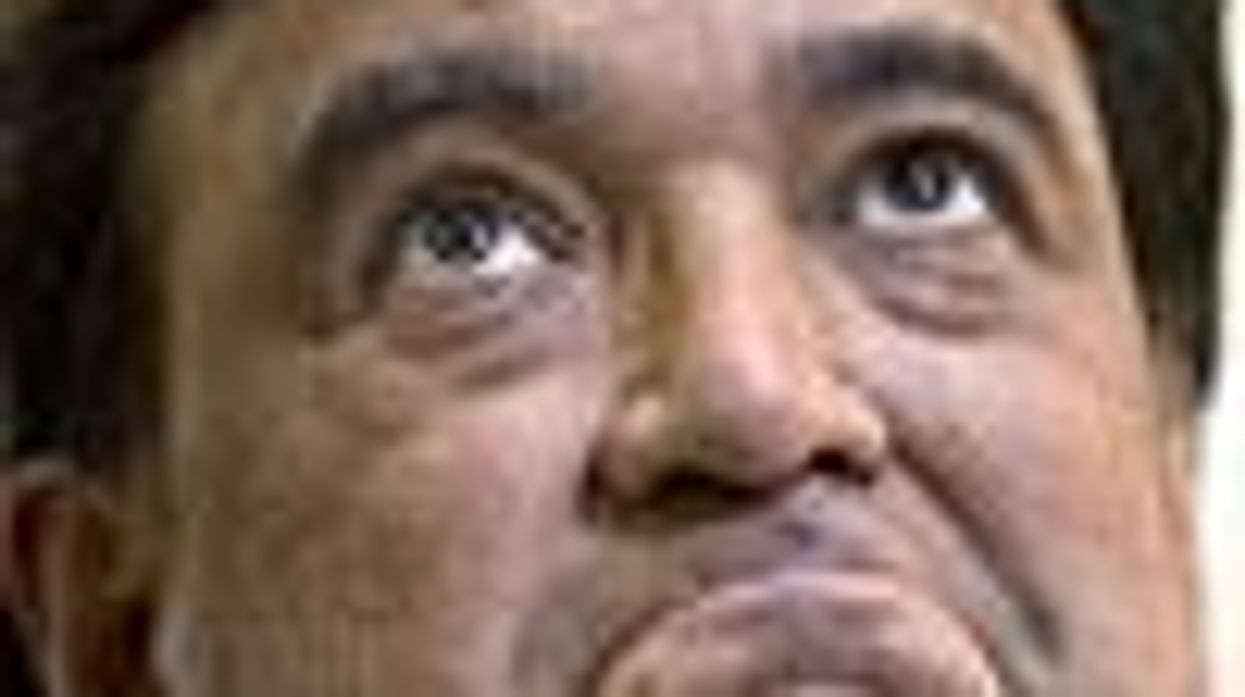
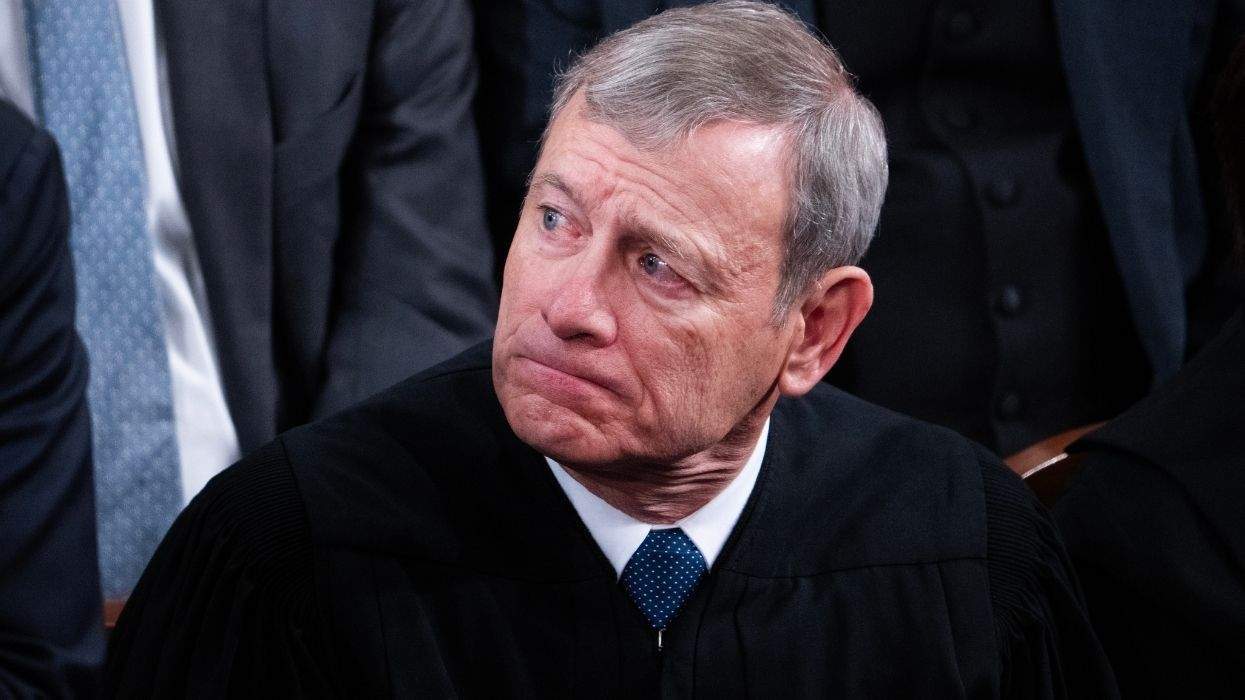
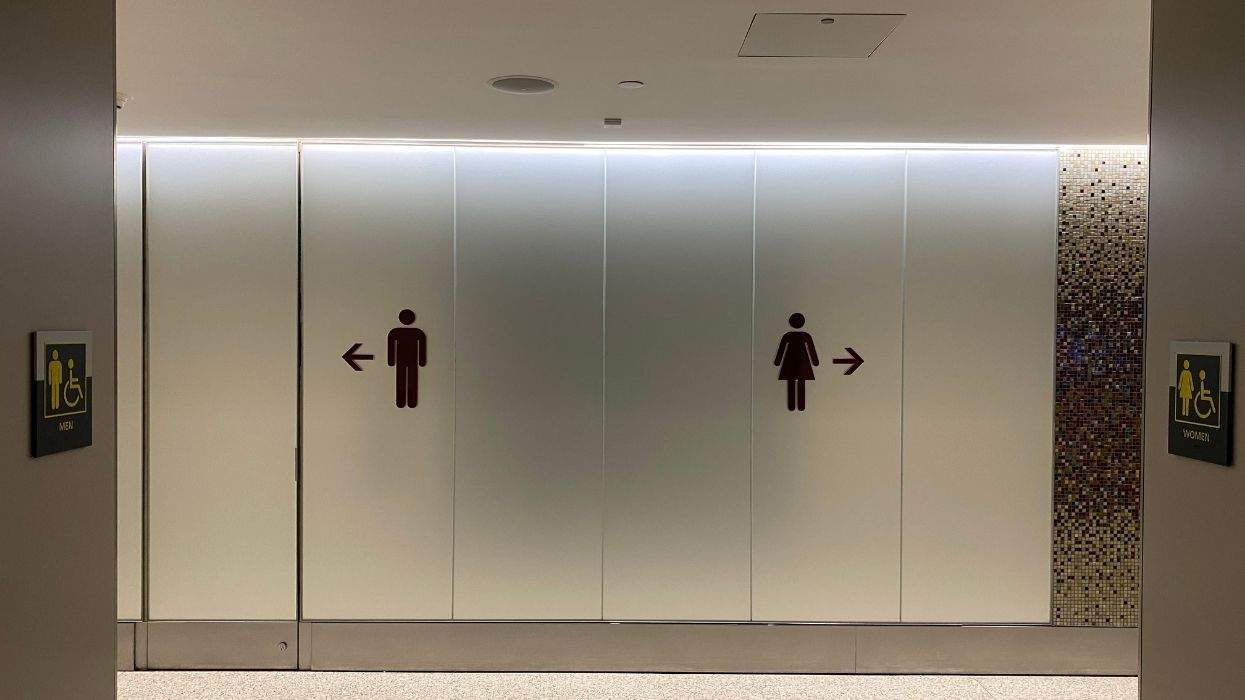
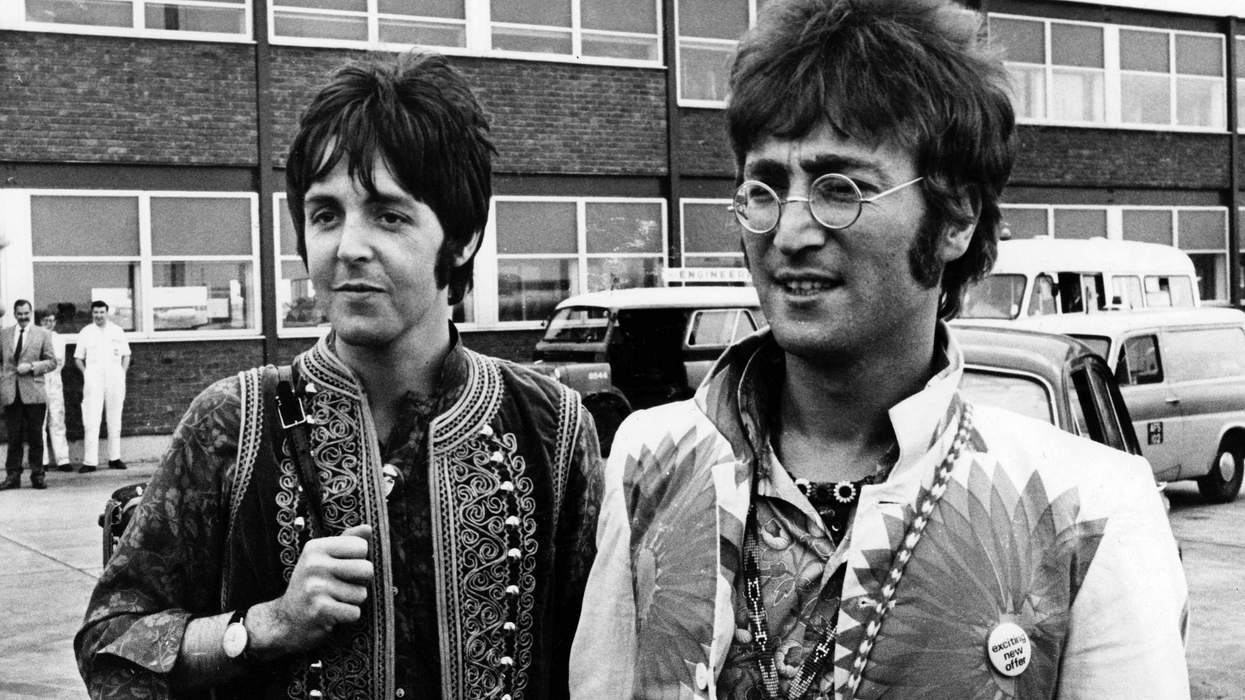
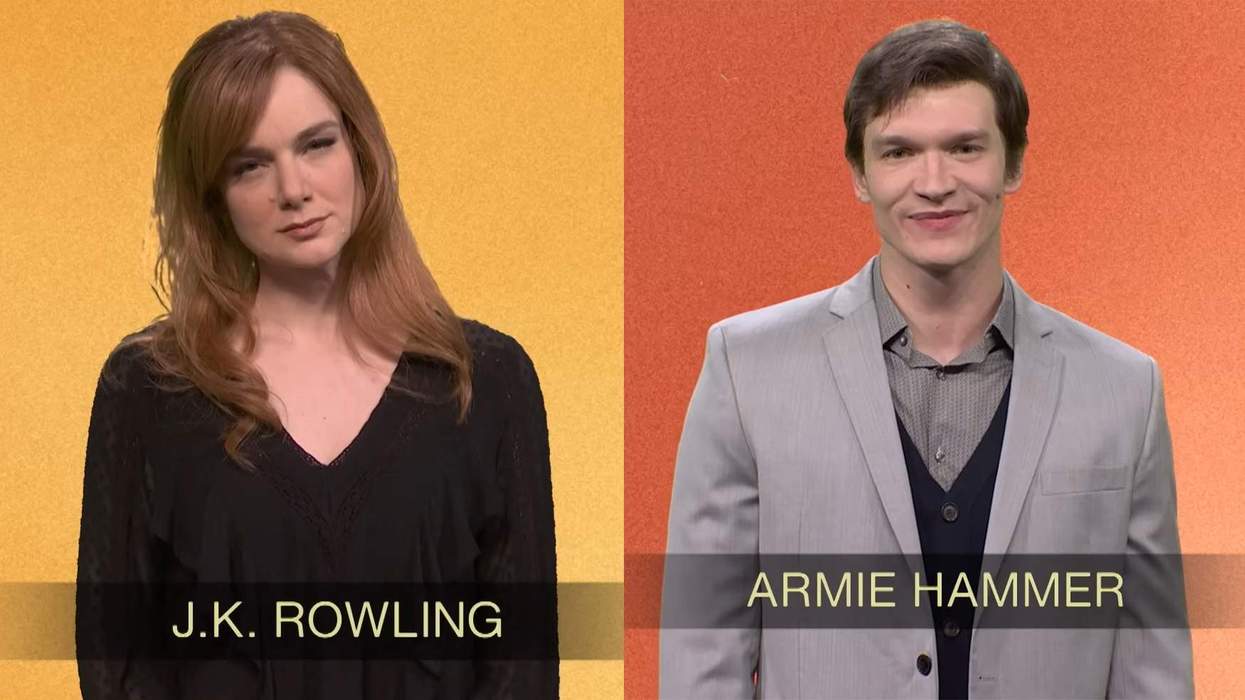



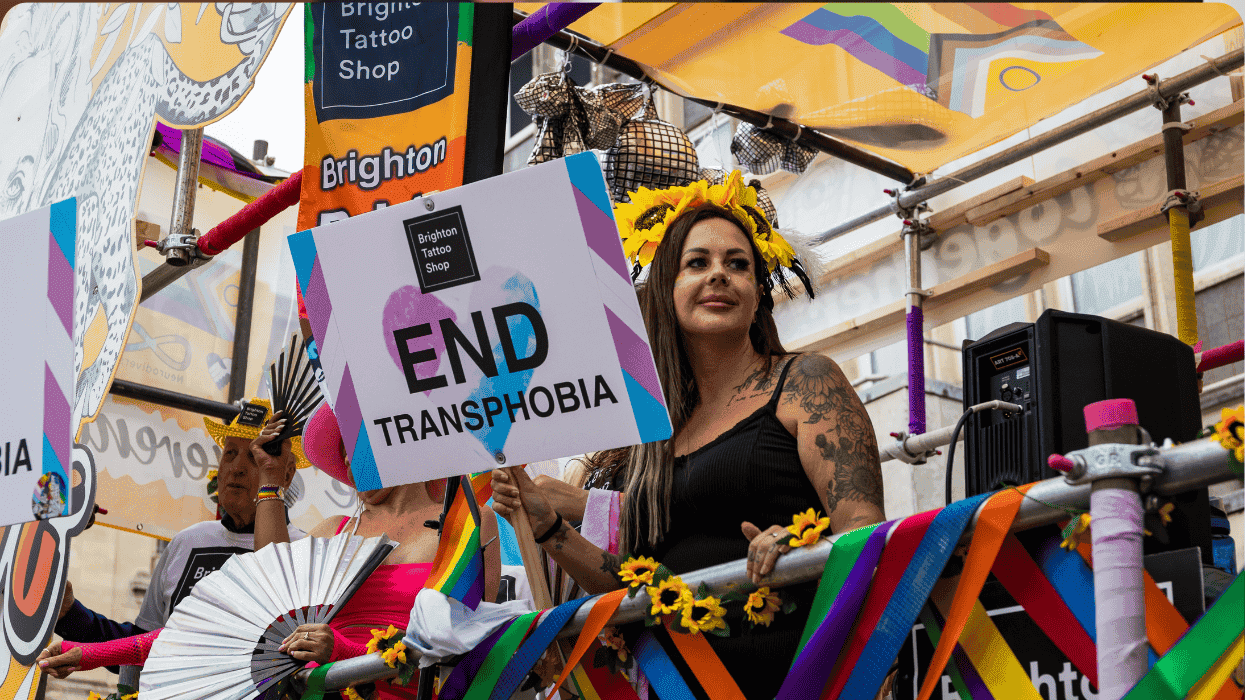




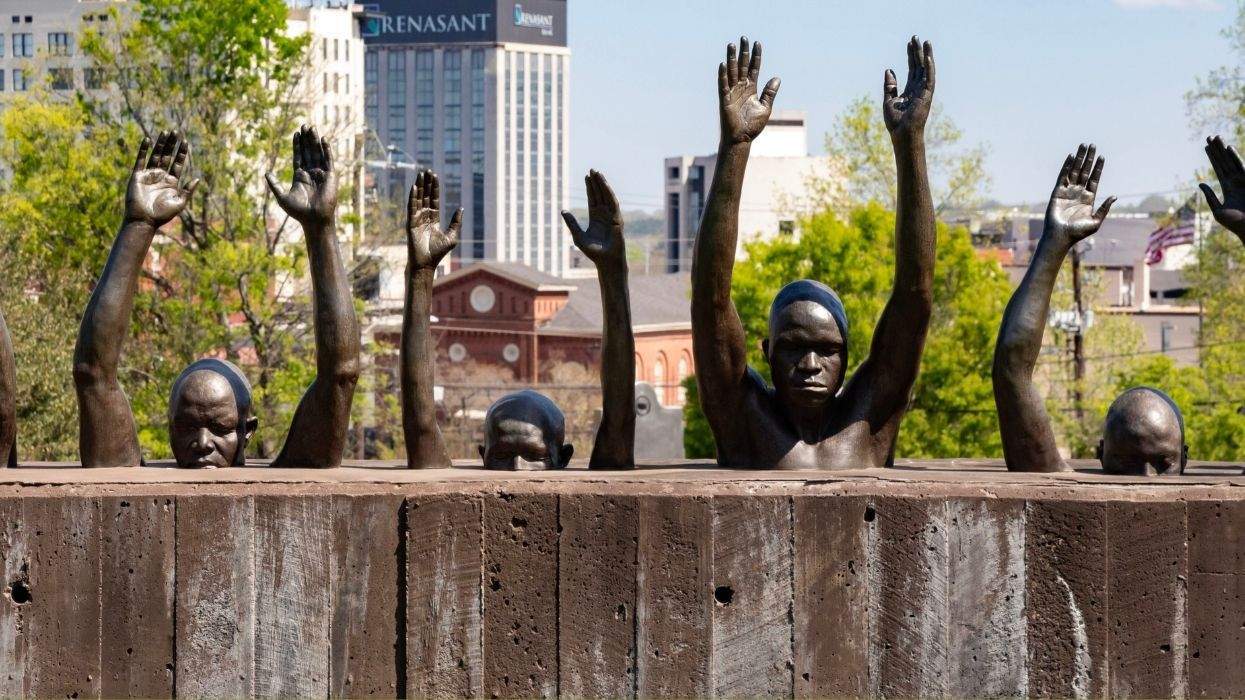

Charlie Kirk DID say stoning gay people was the 'perfect law' — and these other heinous quotes
These are some of his worst comments about LGBTQ+ people made by Charlie Kirk.